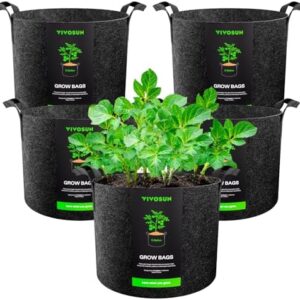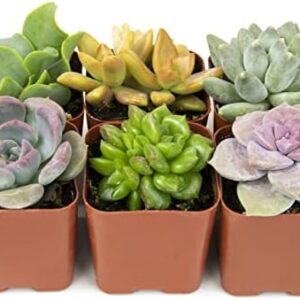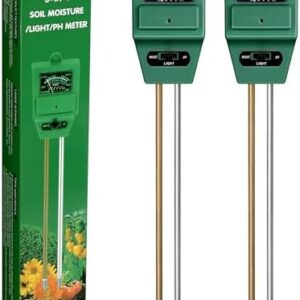Sustainable living is all about finding ways to reduce our impact on the environment while still enjoying a high quality of life. One simple way that all of us can make a difference is by growing our own vegetable gardens. Not only does this practice provide us with fresh and healthy produce, but it also helps to reduce our carbon footprint in a number of ways.
First and foremost, growing our own vegetables reduces the need for transportation. Consider all the steps involved in bringing store-bought produce to our tables. The fruits and veggies are typically grown on large industrial farms, where they are sprayed with pesticides and other chemicals. They are then harvested and transported to processing facilities, where they are packaged and shipped to stores. Finally, we drive to the store to buy them, adding even more greenhouse gas emissions to the mix.
By growing our own vegetables, we cut out all of these intermediate steps. We can walk out to our backyard and pick a ripe tomato or cucumber whenever we need it, eliminating the need for transportation altogether. Not only does this reduce carbon emissions, but it also reduces the amount of packaging waste that ends up in landfills.
In addition to reducing transportation emissions, vegetable gardens also help to sequester carbon dioxide from the atmosphere. Plants take in carbon dioxide during photosynthesis, using it to produce oxygen and store energy in the form of carbohydrates. By growing a variety of vegetables in our gardens, we can help to offset some of the carbon emissions that are generated by our daily activities.
Furthermore, growing our own vegetables can help to reduce water consumption. Industrial farms require large amounts of water to irrigate their crops, often depleting local water sources in the process. By growing our own vegetables, we can use water more efficiently, watering only when necessary and avoiding wasteful practices like overhead sprinklers. Additionally, we can collect rainwater in barrels to use for irrigation, further reducing our environmental impact.
Another benefit of vegetable gardens is their ability to promote biodiversity. Industrial agriculture relies heavily on monocropping, where large fields are planted with a single crop year after year. This practice depletes the soil of nutrients and encourages the spread of pests and diseases. In contrast, vegetable gardens allow us to plant a variety of crops in close proximity, creating a diverse ecosystem that supports beneficial insects and microbes.
By cultivating a healthy soil food web in our vegetable gardens, we can reduce the need for chemical fertilizers and pesticides. Composting our kitchen scraps and yard waste helps to replenish the soil with valuable nutrients, while companion planting and crop rotation can help to naturally control pests and diseases. In this way, vegetable gardens not only provide us with fresh and nutritious food, but they also help to support a healthy and resilient ecosystem.
Moreover, vegetable gardens can serve as a source of inspiration and education for others. When our neighbors see us growing our own food, they may be inspired to do the same. By sharing our knowledge and experiences, we can help to build a community of like-minded individuals who are committed to living more sustainably. As more and more people start growing their own vegetables, the collective impact on the environment can be significant.
In conclusion, vegetable gardens are a simple yet powerful tool for reducing our carbon footprint and living more sustainably. By growing our own vegetables, we can cut down on transportation emissions, sequester carbon dioxide, reduce water consumption, promote biodiversity, and inspire others to do the same. Whether you have a small backyard plot or a few pots on your balcony, there are plenty of ways to get started with your own vegetable garden. So roll up your sleeves, get your hands dirty, and start reaping the rewards of sustainable living today.







